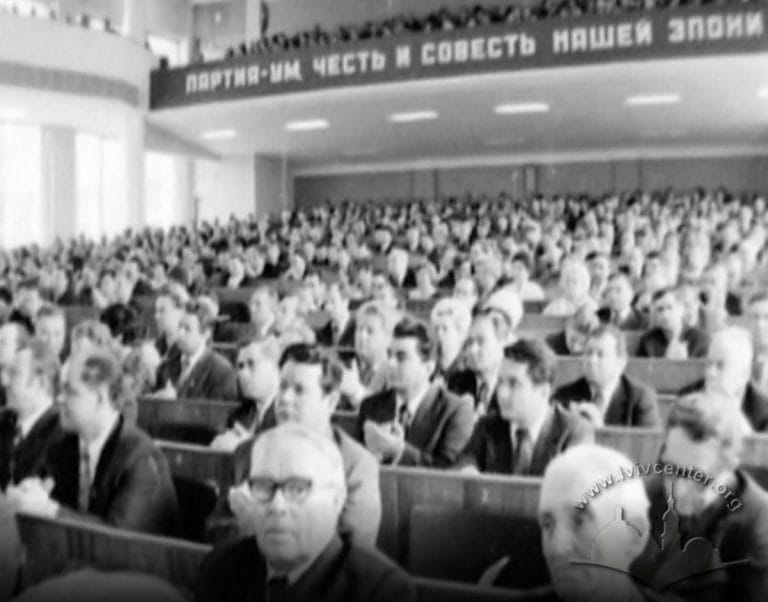Top Secret
Information of the Crimean Oblast Committee of the Communist Party of Ukraine On Fulfillment of the Resolution of the Central Committee of the Communist Party of Ukraine, “On the Facts of Unjustified Bonuses to Senior Party, Soviet, Trade Union, and Komsomol Workers in Some Oblasts of the Republic’, October 23, 1987
In accordance with the resolution of the Central Committee of the Communist Party of Ukraine, the validity of bonus payments to leading cadres was reviewed in the oblast during September-October of this year. This investigation revealed illegal expenditures totaling 11,125 rubles.
For instance, the Sevastopol city executive committees allocated 28.6% of the funds designated for bonuses—nearly double the permitted 15%—to reward released workers of Party, Soviet, trade union, and Komsomol bodies based on the results of socialist competitions. Between 1985 and 1987, such illegal payments in Sevastopol amounted to over 7,000 rubles. Similar violations were identified in Kerch, Dzhankoy, Yevpatoria, and other cities.
Significant irregularities were also found in bonuses distributed for participation in the collection, storage, and shipment of ferrous and non-ferrous metal scrap. For example, during the first quarter of this year, senior officials such as a resort department engineer, a juvenile affairs executive secretary, an instructor for awards, and executive secretary of the anti-drinking commission were rewarded—despite not being listed as eligible recipients by the regional executive committee.
Similar cases were uncovered in other cities and districts of the oblast.
Bonuses were frequently granted to workers in Soviet, administrative, and economic bodies under the pretense of aiding state insurance organization. In Krasnoperekopsk district, for example, the secretary and head of the general department were rewarded as members of a state insurance support group, though they held no such positions. Additionally, in Kerch – precisely in Kirovsk and Ordzhonikidze districts – more than 120 individuals, including district police department employees, received bonuses under similar dubious circumstances last October. Instead of transferring these bonuses to organizational accounts, recipients often collected the funds directly from other organizations.
Some senior officials also illegally received bonuses as members of societies such as those for the protection of historical and cultural monuments, book lovers, or nature enthusiasts. In many cases, regional society presidiums authorized these bonuses without Party or Soviet approval, distributing them via postal orders. Such practices were documented in Simferopol, Kerch, Saki, Sudak, and Yalta.
There are numerous facts of payment of monetary rewards to exempted party and especially trade union workers without the decision of party committees.
Numerous monetary rewards were paid to exempted Party and trade union workers without proper authorization. For example: the chairman of the trade union committee of the Yalta production association “Tavria” received 1,768 rubles from various bonus funds in 1986. The secretary of the Party committee at the state farm “Predgorye” (Bilogirsk district) received 50 rubles in 1986. The chairman of the trade union committee at the state farm “Kirovskyi” (Chornomorsk district) received 640 rubles in 1985.
Currently, city and district Party committees, prosecutor’s offices, and financial bodies are taking steps to address these violations. As of October 15, 1987, 180 individuals had returned illegally received bonuses amounting to over 5,000 rubles.
The review of compliance with the established procedures for bonus payments to leading cadres is ongoing.
Secretary of the Oblast Committee of the Communist Party of Ukraine A. Hyrenko
Chairman of the Oblast Executive Committee A. Roshchupkin



In response to the resolution of the Central Committee of the Communist Party of Ukraine dated August 28, 1987, which highlighted instances of unjustified bonuses for high-ranking officials, oblast committees of the Communist Party of Ukraine were tasked with investigating similar practices in their respective oblasts. The Crimean Oblast Committee submitted a top-secret report to the Central Committee, providing a typical account of their findings.
The violations uncovered followed a familiar pattern: exceeding prescribed bonus limits, lack of justification, and breaches of established procedures. The dubious grounds cited for awarding these bonuses reflected informal agreements between the heads of the awarding institutions and the beneficiaries. Notably, those involved were aware of the illegality of their actions and took steps to obscure these transactions, anticipating potential audits.
Interestingly, the report provides no information on penalties for those who initiated these awards, nor does it mention any party sanctions against them. Essentially, the recipients faced no significant consequences, as their consent was not required for the bonuses to be granted. These unjustified bonuses functioned as a kind of win-win lottery: recipients could benefit without risk, as the worst outcome was merely returning the funds—a consequence hardly considered punitive. While high-profile cases of such unjustified bonuses occasionally came to light, they failed to deter the ongoing practice. Managers continued to reward allies for lobbying institutional interests or for their leniency towards subordinates.